Graduate Research
The Politics of Religion at Home and Abroad project supports graduate students engaged in dissertation research.
2018 Summer Research Fellows
Joe Bartzel (Indiana University)
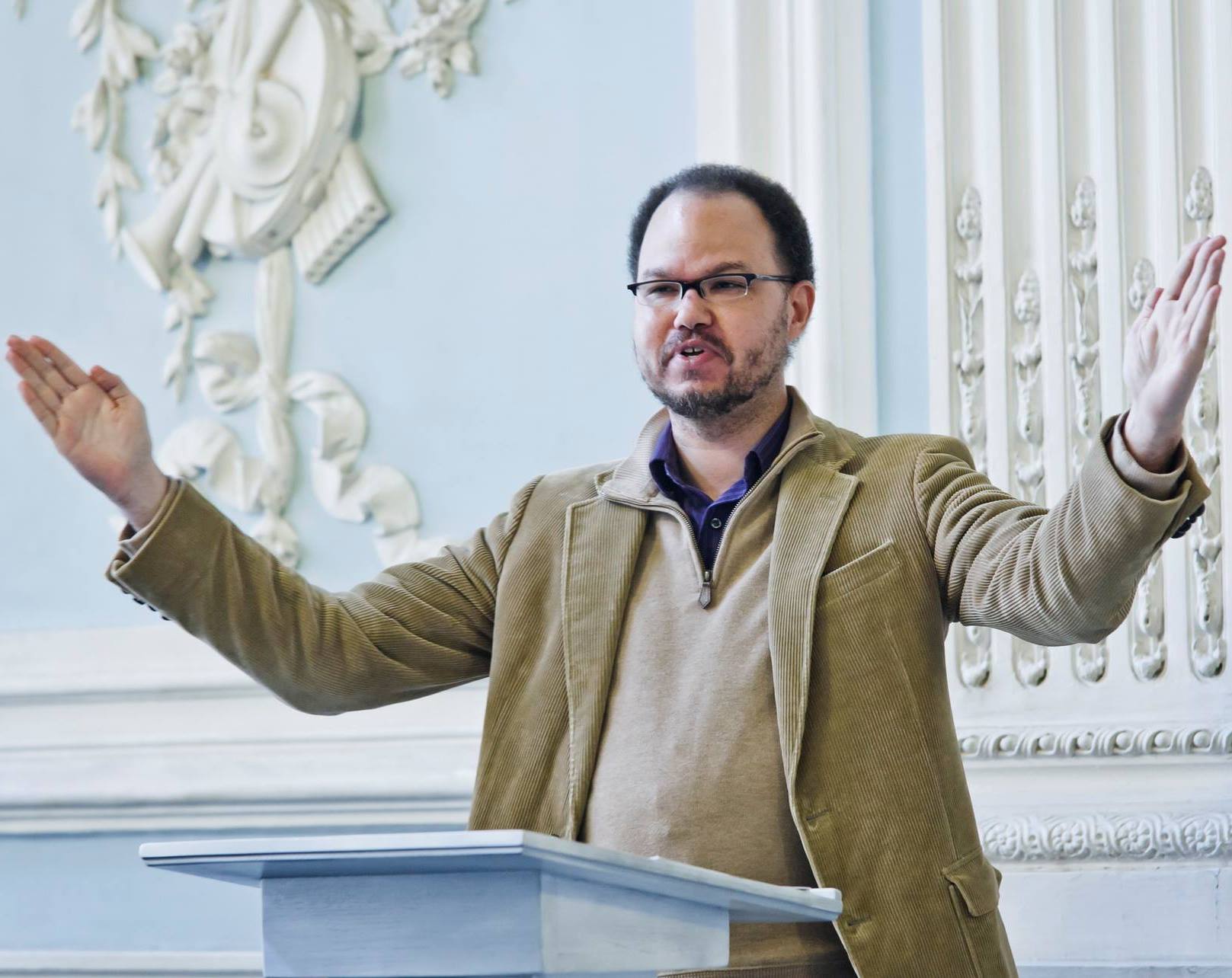 Joe Bartzel is a native of St. Louis, Missouri, who loves Cardinals baseball, Provel cheese and Red Hot Riplets. His dissertation, From Riot to Reconciliation: The Ferguson Commission and the Future of St. Louis, examines the history and persistence of racial inequality throughout the St. Louis region. The project places the Ferguson Commission, convened in the aftermath of the shooting of Michael Brown in 2014, in the context of a century of riot commissions that convene in the aftermath of racial unrest in the United States. Following the work of political scientists who have studied riot commissions, Joe concludes that the Ferguson Commission ultimately fell into the typical pattern of all other such commissions, processing racial grievances in a manner that delegitimizes them and ultimately impedes progress toward racial equality. In place of this moribund commission politics, Joe suggests a truth and reconciliation commission, modeled after successful truth commissions abroad and adapted to be fitting to the context of an American city. Calling upon theological work on the relationship between history and memory, as well as scholarship on the rites and sites associated with American civil religion, Joe’s project articulates a model for institutionalizing the practice of racial reconciliation as a central feature of civic life in St. Louis. Joe’s work this summer focuses on describing the important function that testimony performs in effecting such public reconciliation in the wake of racial inequality. To that end, Joe will spend the summer in the archives of the Missouri Historical Society in St. Louis, studying collections of oral histories in which black St. Louisans have spoken candidly about their experiences of racial segregation and inequality as residents of the region.
Joe Bartzel is a native of St. Louis, Missouri, who loves Cardinals baseball, Provel cheese and Red Hot Riplets. His dissertation, From Riot to Reconciliation: The Ferguson Commission and the Future of St. Louis, examines the history and persistence of racial inequality throughout the St. Louis region. The project places the Ferguson Commission, convened in the aftermath of the shooting of Michael Brown in 2014, in the context of a century of riot commissions that convene in the aftermath of racial unrest in the United States. Following the work of political scientists who have studied riot commissions, Joe concludes that the Ferguson Commission ultimately fell into the typical pattern of all other such commissions, processing racial grievances in a manner that delegitimizes them and ultimately impedes progress toward racial equality. In place of this moribund commission politics, Joe suggests a truth and reconciliation commission, modeled after successful truth commissions abroad and adapted to be fitting to the context of an American city. Calling upon theological work on the relationship between history and memory, as well as scholarship on the rites and sites associated with American civil religion, Joe’s project articulates a model for institutionalizing the practice of racial reconciliation as a central feature of civic life in St. Louis. Joe’s work this summer focuses on describing the important function that testimony performs in effecting such public reconciliation in the wake of racial inequality. To that end, Joe will spend the summer in the archives of the Missouri Historical Society in St. Louis, studying collections of oral histories in which black St. Louisans have spoken candidly about their experiences of racial segregation and inequality as residents of the region.
Gina Giliberti (Northwestern University)
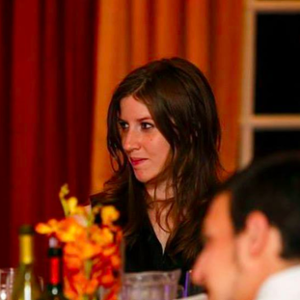 Gina Giliberti is a doctoral candidate in Political Science whose dissertation research examines the relationship between religious governance, public legibility, and affect theory within International Relations. Utilizing insights from new approaches in political theory, anthropology, and religious studies, she demonstrates how ‘religious’ affects come to be loci’s of governance precisely through constructs of ‘publics’ which rely on normative affective/temperamental regimes schemas of judgment that privilege certain emotional displays while censoring or misrecognizing others. With a specific focus in questions of interpretive methodology, Gina’s current research examines contemporary debates concerning “affective” and “religious” phenomena within international change and conflict.
Gina Giliberti is a doctoral candidate in Political Science whose dissertation research examines the relationship between religious governance, public legibility, and affect theory within International Relations. Utilizing insights from new approaches in political theory, anthropology, and religious studies, she demonstrates how ‘religious’ affects come to be loci’s of governance precisely through constructs of ‘publics’ which rely on normative affective/temperamental regimes schemas of judgment that privilege certain emotional displays while censoring or misrecognizing others. With a specific focus in questions of interpretive methodology, Gina’s current research examines contemporary debates concerning “affective” and “religious” phenomena within international change and conflict.
Hafsa Oubou (Northwestern University)
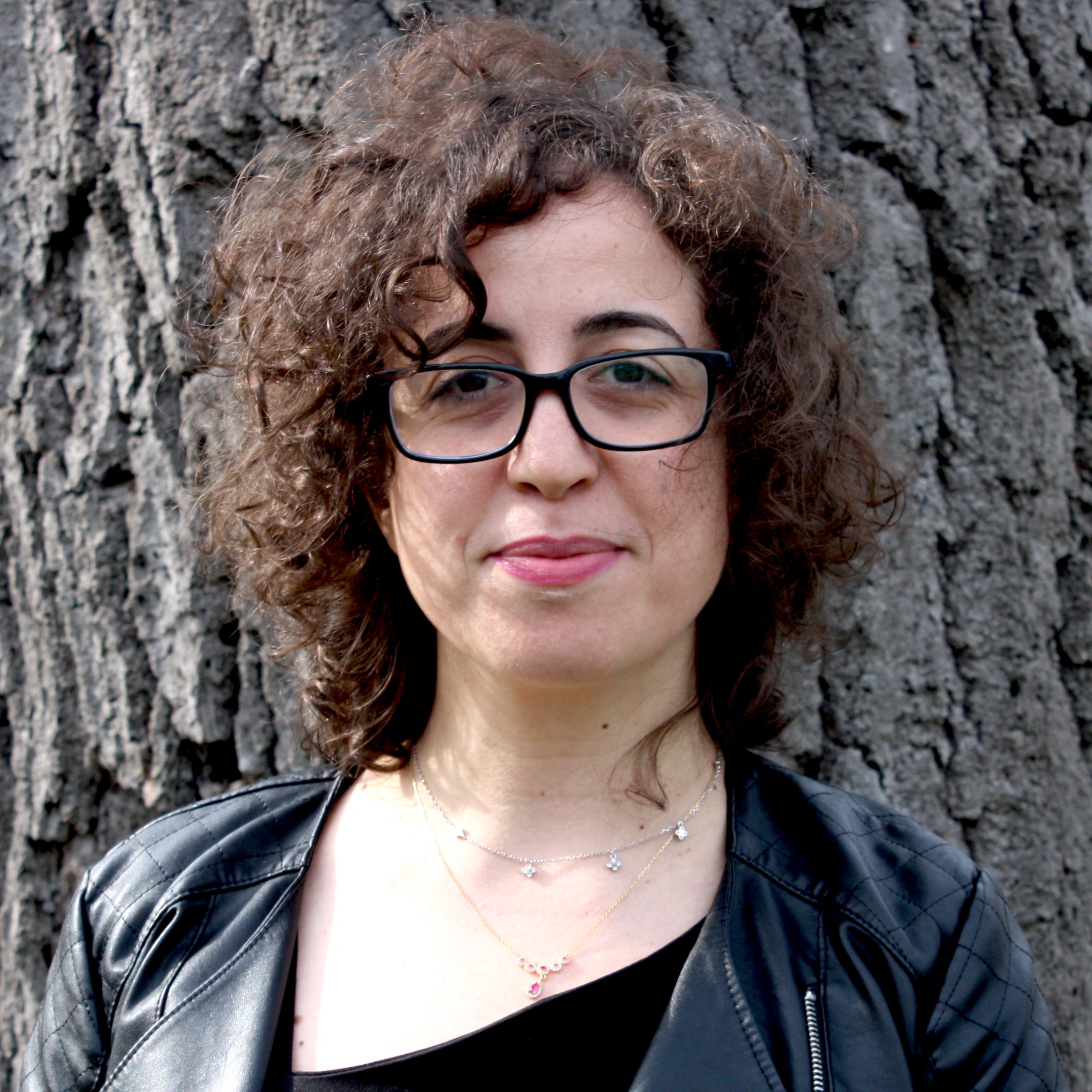
I’m a doctoral student in anthropology at Northwestern University. I’m interested in public education, citizenship, and migration among the Moroccan diaspora in Belgium. In my research, I engage more broadly with questions of state-subject relations, the making of subject-citizens, politics of secularism, diaspora, race and ethnicity, youth, transnationalism, Islam in Europe, and the intersection of religion and politics. My dissertation project investigates how public school instruction in civics and religion participates in a transnational understanding of citizenship in Belgium, a society marked by migration from Morocco. In my research project, I examine the multivocal concept of le vivre ensemble (“living together,” also “co-existence”) through public school instruction in citizenship and religion, with particular attention on the courses on Islam, ethics, and citizenship. My research investigates how the pedagogical training in “moderate” Islam subverts the state discourse on “neutrality” central to the Belgian model of the separation of church and state. I will spend summer 2018, as well as the upcoming school year doing fieldwork and archival research in Belgium 1) to unpack the constructed meanings of “neutrality” and “secular” that are central to the new education reforms and policies, and 2) to explore the transnational category of “moderate” Islam in the pedagogy training of teachers of Islam.
Gheorghe G. Pacurar (Indiana University)
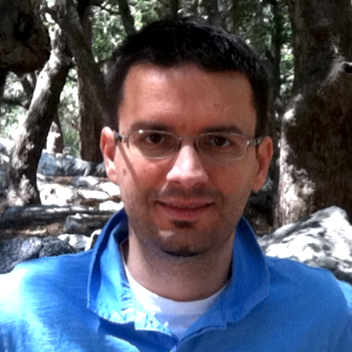 My research concerns the political role of religion in modernity from the viewpoint of the intersection between religion, law, and politics in matters concerning the status of religious minorities in interwar Romania. I argue that the legislative ambiguity seen in the text and practice of law during the interwar period could be traced to the interaction between the Orthodox, Protestant, local, and international political factors. The crystallization of a legal idiom for religious issues could indicate that not only the state shaped the language of religious actors, but also the latter had an important contribution in this process. It also shows that the permeation of the public sphere by theological concerns could lead to the institutionalization of stereotypes to define the religious other. Last but not least, the multiple tensions between state institutions at both central and local levels could raise important questions regarding the capacity of a presumed monolithic state to control individual consciences without the help of religion. Thanks to the funding from “At Home and Abroad Project,” I will travel this summer to Romania where I plan to visit libraries and archives in at least two major cities. More precisely, I will search for primary sources related to the efforts of the Orthodox Church to shape Romanian legislation between 1918-1940, to the status of religious minorities in that period, and to the local reception of American efforts to support democratic freedoms in Romania. Meetings with local scholars are also part of my trip. Eventually, I hope that this trip will allow me to assess the extent and value of primary sources and clarify the precise direction of my future research.
My research concerns the political role of religion in modernity from the viewpoint of the intersection between religion, law, and politics in matters concerning the status of religious minorities in interwar Romania. I argue that the legislative ambiguity seen in the text and practice of law during the interwar period could be traced to the interaction between the Orthodox, Protestant, local, and international political factors. The crystallization of a legal idiom for religious issues could indicate that not only the state shaped the language of religious actors, but also the latter had an important contribution in this process. It also shows that the permeation of the public sphere by theological concerns could lead to the institutionalization of stereotypes to define the religious other. Last but not least, the multiple tensions between state institutions at both central and local levels could raise important questions regarding the capacity of a presumed monolithic state to control individual consciences without the help of religion. Thanks to the funding from “At Home and Abroad Project,” I will travel this summer to Romania where I plan to visit libraries and archives in at least two major cities. More precisely, I will search for primary sources related to the efforts of the Orthodox Church to shape Romanian legislation between 1918-1940, to the status of religious minorities in that period, and to the local reception of American efforts to support democratic freedoms in Romania. Meetings with local scholars are also part of my trip. Eventually, I hope that this trip will allow me to assess the extent and value of primary sources and clarify the precise direction of my future research.
2017 Summer Research Fellows
Jacob Boss (Indiana University)
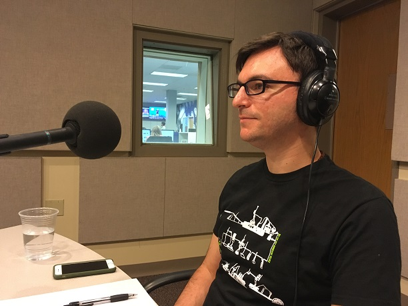 My research concerns the religious and ethical dimensions of integrating technology into human bodies and lifestyles, including how religiously rooted discourses of purity and the idea of natural bodily configurations patrol the boundaries of the human form. Thanks to the support of the Politics of Religion at Home and Abroad I was able to travel to Las Vegas in July of 2017 to Defcon, the world's largest hacker convention, where I met cyborgs, transhumanists, and hackers of every flavor. It was an extraordinary opportunity to hear directly from people intentionally altering and augmenting their bodies with biotechnology and implantable electronics. The transhumanist project seeks to overcome aging, illness, and death, oriented by the belief that, "Technology is hope." I shared some of my Las Vegas adventures with the Noon Edition program on Indiana Public Media, NPR affiliate WFIU. You can listen here: http://indianapublicmedia.org/noonedition/microchipping-future-implant-technology/
My research concerns the religious and ethical dimensions of integrating technology into human bodies and lifestyles, including how religiously rooted discourses of purity and the idea of natural bodily configurations patrol the boundaries of the human form. Thanks to the support of the Politics of Religion at Home and Abroad I was able to travel to Las Vegas in July of 2017 to Defcon, the world's largest hacker convention, where I met cyborgs, transhumanists, and hackers of every flavor. It was an extraordinary opportunity to hear directly from people intentionally altering and augmenting their bodies with biotechnology and implantable electronics. The transhumanist project seeks to overcome aging, illness, and death, oriented by the belief that, "Technology is hope." I shared some of my Las Vegas adventures with the Noon Edition program on Indiana Public Media, NPR affiliate WFIU. You can listen here: http://indianapublicmedia.org/noonedition/microchipping-future-implant-technology/
Andrew Monteith (Indiana University)
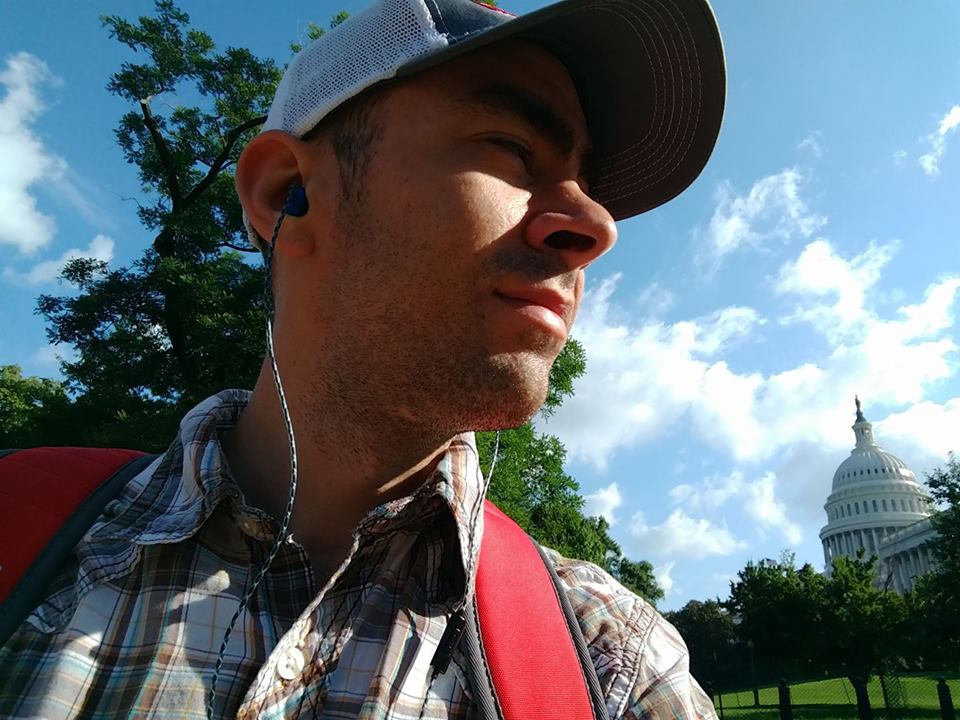 Andrew Monteith’s work focuses on American religion and concepts of war. His dissertation “Threatening the Very Foundations of Civilization”: Religion and the American Drug War, 1875-1937 argues that the early era of the US War on Drugs was deeply entwined with religious ideologies. Although it may look secular at the surface, the assumptions and assertions of antinarcotic reformers were founded upon postmillennialism and mainstream Protestant moralities. Thanks to funding from the “At Home and Abroad” project, Andrew spent his summer in Washington D.C. digging through the National Archives and the Library of Congress. He found countless sources across multiple collections of government files, private papers, rare books, and the records of international conventions to fully demonstrate his argument. He is now currently in the process of writing his dissertation.
Andrew Monteith’s work focuses on American religion and concepts of war. His dissertation “Threatening the Very Foundations of Civilization”: Religion and the American Drug War, 1875-1937 argues that the early era of the US War on Drugs was deeply entwined with religious ideologies. Although it may look secular at the surface, the assumptions and assertions of antinarcotic reformers were founded upon postmillennialism and mainstream Protestant moralities. Thanks to funding from the “At Home and Abroad” project, Andrew spent his summer in Washington D.C. digging through the National Archives and the Library of Congress. He found countless sources across multiple collections of government files, private papers, rare books, and the records of international conventions to fully demonstrate his argument. He is now currently in the process of writing his dissertation.
Aram Sarkisian (Northwestern University)
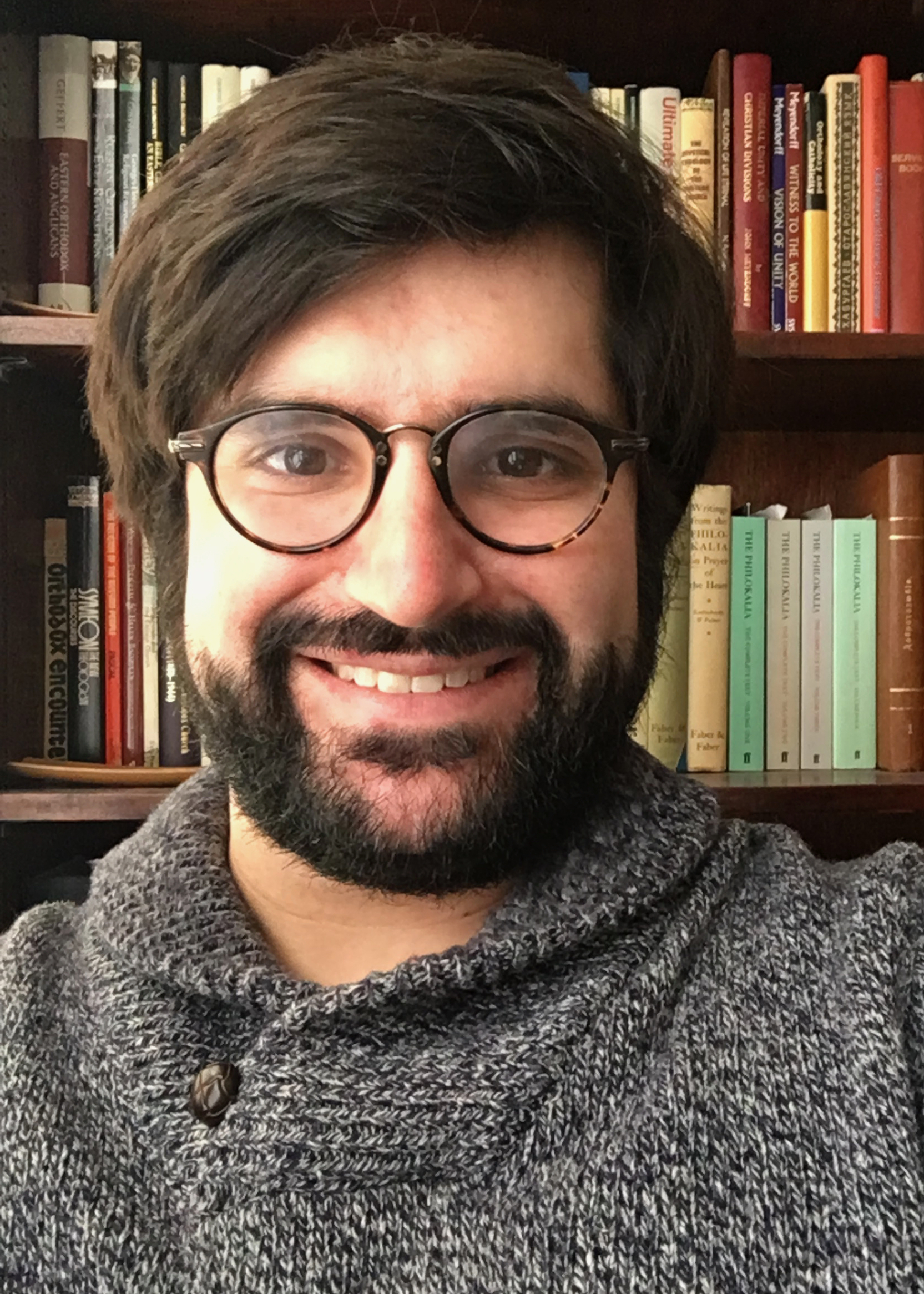 My work concerns the relationships between religion, migration, identity, and citizenship during the United States’ Progressive Era. My dissertation, The Cross Between Hammer and Sickle: Russian Orthodox Christians in the United States, 1893-1924, places Russian Orthodox believers within American immigration policy and pervasive nativist ideologies from the turn of the twentieth century through the passage of the Johnson-Reed Act of 1924, which established restrictive quotas that all but eliminated migration to the United States from the Orthodox world. I argue that social movements and state-imposed measures designed to coercively assimilate the foreign-born were in fact malleable and useful tools immigrants frequently used to assert control and maintain traditional institutions within their own communities. A generous research fellowship from the Politics of Religion at Home and Abroad project allowed me to work in the records of the United States Immigration and Naturalization Service at the National Archives in Washington, D.C., where I consulted the deportation hearing transcripts of Russian Orthodox immigrants arrested on charges of anarchism during the Red Scare of 1918-20. My research shows that these cases concerned suspects referred to federal agents by friends and neighbors in a Russian immigrant neighborhood whose Orthodox parish and related institutions had fractured over the rise of Bolshevism. I was deeply moved as men whose names I knew well from the decade I have worked on this project emerged from the dusty, typewritten pages as nuanced, complex actors deeply conflicted about their changing lives in America. This was particularly poignant as fearful, contemporary debates on immigrants and American immigration policy carried on just blocks from my desk.
My work concerns the relationships between religion, migration, identity, and citizenship during the United States’ Progressive Era. My dissertation, The Cross Between Hammer and Sickle: Russian Orthodox Christians in the United States, 1893-1924, places Russian Orthodox believers within American immigration policy and pervasive nativist ideologies from the turn of the twentieth century through the passage of the Johnson-Reed Act of 1924, which established restrictive quotas that all but eliminated migration to the United States from the Orthodox world. I argue that social movements and state-imposed measures designed to coercively assimilate the foreign-born were in fact malleable and useful tools immigrants frequently used to assert control and maintain traditional institutions within their own communities. A generous research fellowship from the Politics of Religion at Home and Abroad project allowed me to work in the records of the United States Immigration and Naturalization Service at the National Archives in Washington, D.C., where I consulted the deportation hearing transcripts of Russian Orthodox immigrants arrested on charges of anarchism during the Red Scare of 1918-20. My research shows that these cases concerned suspects referred to federal agents by friends and neighbors in a Russian immigrant neighborhood whose Orthodox parish and related institutions had fractured over the rise of Bolshevism. I was deeply moved as men whose names I knew well from the decade I have worked on this project emerged from the dusty, typewritten pages as nuanced, complex actors deeply conflicted about their changing lives in America. This was particularly poignant as fearful, contemporary debates on immigrants and American immigration policy carried on just blocks from my desk.
(Northwestern University)
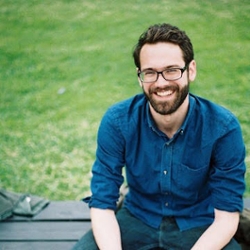 Jeffrey Wheatley is a doctoral student in American Religions. He researches race, religion, empire, and state power in the United States, especially in the late nineteenth and early twentieth centuries. Related focal points include pedagogy, theory and method, global Christianity, secularism, the history of the study of religion, and popular use of the octopus as an image for visualizing dangerous others. Jeff’s current project is a cultural and political history of the idea of religious fanaticism in the United States’ colonial and domestic territories from the 1830s to the 1930s. He examines how Christian ideas and debates about excessive religion have influenced broader governmental strategies for policing “unruly,” and often racialized, populations. The historical narrative traces the nineteenth-century popularization of fanaticism in American religious discourse and proceeds to explore how colonial and domestic state institutions deployed this terminology in the late nineteenth and early twentieth century, when religious fanaticism became a key concern for imperial and national security. Jeff spent Summer 2017 in Washington D.C. and Ann Arbor going over state and personal archives to understand better how ideas about “un-modern” religions influenced US strategies of pacification in the Philippines and Haiti in the early twentieth century.
Jeffrey Wheatley is a doctoral student in American Religions. He researches race, religion, empire, and state power in the United States, especially in the late nineteenth and early twentieth centuries. Related focal points include pedagogy, theory and method, global Christianity, secularism, the history of the study of religion, and popular use of the octopus as an image for visualizing dangerous others. Jeff’s current project is a cultural and political history of the idea of religious fanaticism in the United States’ colonial and domestic territories from the 1830s to the 1930s. He examines how Christian ideas and debates about excessive religion have influenced broader governmental strategies for policing “unruly,” and often racialized, populations. The historical narrative traces the nineteenth-century popularization of fanaticism in American religious discourse and proceeds to explore how colonial and domestic state institutions deployed this terminology in the late nineteenth and early twentieth century, when religious fanaticism became a key concern for imperial and national security. Jeff spent Summer 2017 in Washington D.C. and Ann Arbor going over state and personal archives to understand better how ideas about “un-modern” religions influenced US strategies of pacification in the Philippines and Haiti in the early twentieth century.
